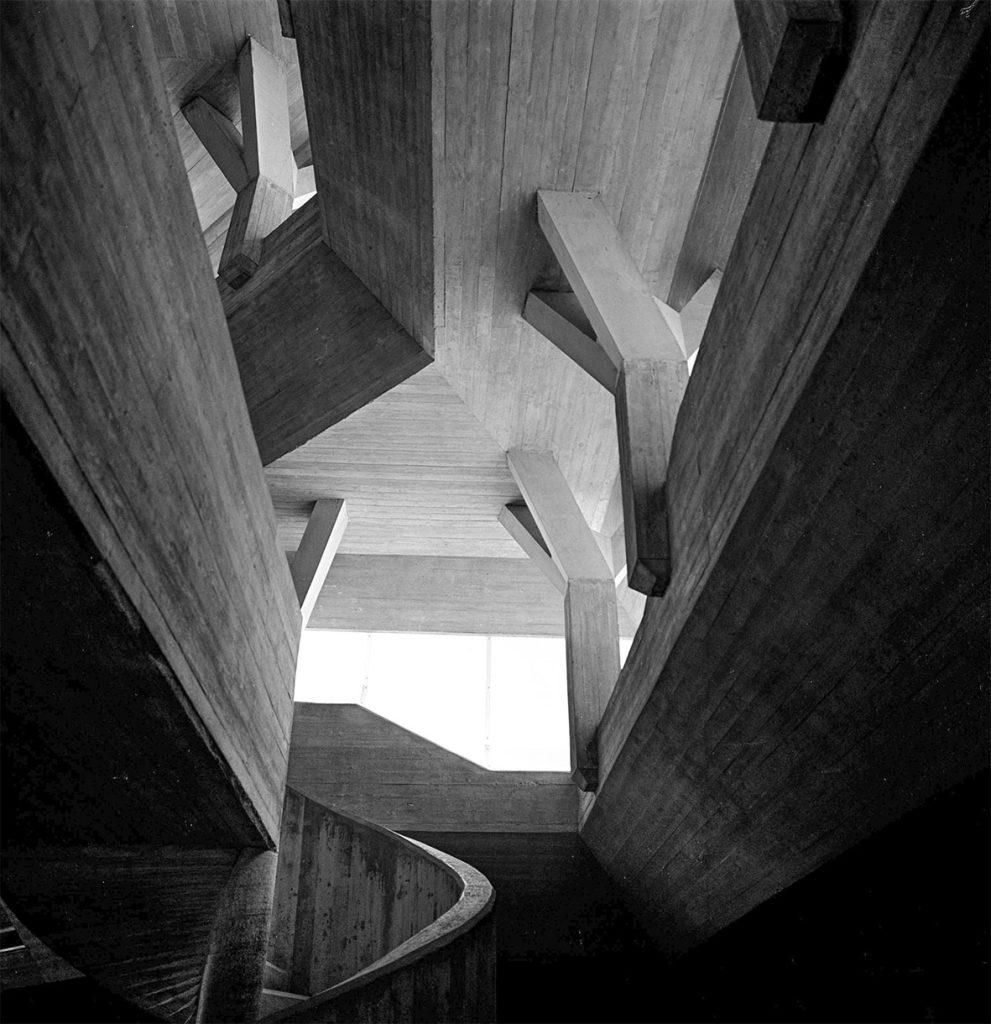
Günther Domenig, Eilfried Huth, Osterkirche, Oberwart, 1966–1969
©
© Architekturzentrum Wien, Sammlung, Foto: Karin Mack
"We are aware of the inequality in our society. It is unacceptable, and it is based on and only maintained by oppression. …Women are being cut off from their contribution to history, there are no female figures to identify with, and a language is imposed upon them that prevents women from taking possession of and learning from their own buried history."
When, the International Association of Women Artists (INTAKT, 1975-1985) published their Femifesto in 1978, one of its members, Karin Mack, had already freed herself from a traditional marriage. “For a while, I tried to slip into a role the husband had envisaged for me as a woman. But I realised it just wasn’t me.”* The path to artistic and personal emancipation was gruelling, because although the architect, critic and writer Friedrich Achleitner was a member of the avant-garde Vienna Group, he remained attached to traditional role models as a husband.
Karin Mack discovered her love of photography while she was still at school, during a trip abroad to England. Through part-time work at the Galerie nächst St. Stephan she soon came into contact with the Vienna Group around Gerhard Rühm and Friedrich Achleitner, whom she married in 1962. Her interest in architecture grew and Mack was able to take her first photographs of buildings. She was chronicling Austrian architectural history in the late 1960s and 1970s — even before Margherita Spiluttini.
“I worked a lot with light and shadow to show the three-dimensionality of the architecture. I usually walked around the building at a distance before slowly venturing inside. But I never wanted fancy, razor-sharp photos.”* This play with light and shadow is particularly effective in the photographs of the Osterkirche church in Oberwart, Burgenland (Günter Domenig, Eilfried Huth, 1966-1969). Mack takes visible delight in documenting the development process at the construction site for the UNO City (Johann Staber, 1972-1979). Her archive of architectural photographs was acquired by the Az W collection in 2013. At the end of the 1970s, Mack turned increasingly to art photography and joined the ranks of Austria’s feminist avant-garde with her series of conceptual self-portraits.
*From an interview with Karin Mack, 24 April 2024 (by Sonja Pisarik and Iris Ranzinger, Az W)
